International Certifications
August 3, 2023 2024-06-27 12:45International Certifications

EIF INTERNATIONAL CERTIFICATIONS
Get certified by joining the Emirates Institute of Finance Certification Programs in collaboration with different international banking institutes.
EIF INTERNATIONAL CERTIFICATIONS
ABOUT EIF INTERNATIONAL CERTIFICATIONS
As banks adopt cutting edge technology, they are facing a shortage of skilled professionals. To address this challenge, EIF has introduced a range of certifications covering various aspects of banking. These certifications cover nearly all the roles in banking such as credit analysis, compliance, risk management etc. EIF also provides certifications in emerging areas such as Artificial Intelligence and Responsible Banking.
EIF certifications have a flexible framework, making them suitable for both freshers and experienced professionals. They offer numerous benefits to learners aiming to advance their careers in the banking industry. Acquiring these certifications enables learners to validate their skills and knowledge and provides the learners with a competitive advantage.
CERTIFICATION PARTNERS
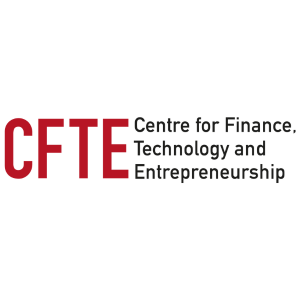
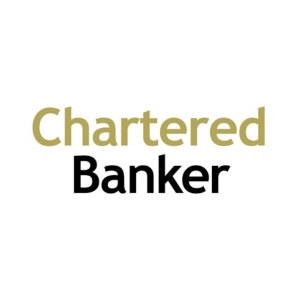
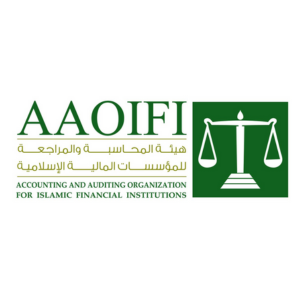
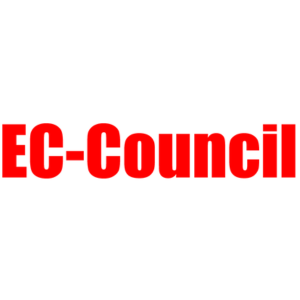
EIF certifications are offered in collaboration with globally recognized training institutions. This enhances the credibility of EIF international certifications and ensures that these certifications are recognised globally. To issue joint certifications, EIF has partnered with institutions such as The Chartered Banker Institute, EC-Council, Accounting and Auditing Organization for Islamic Financial Institutions and CFTE.
EXPLORE OUR CERTIFICATIONS
AML & CFT Compliance
Artificial Intelligence
Business English
Corporate Relationship Management
Credit Analysis
Cybersecurity
Data Analytics
Financial Technology
Fraud Management
Human Resource Management
Internal Audit
Islamic Retail Banking
Product Management
Quality and Innovation
Responsible Banking
Risk Management
Trade Finance
Treasury Management
Wealth Management
Motor Insurance
ABOUT EIF INTERNATIONAL CERTIFICATIONS
The EIF learning pathways are now internationally accredited. The successful learners will be awarded a joint international certification by EIF and Chartered Banker Institute, UK. Chartered Banker Institute (CBI), established in 1875, was awarded the Royal Charter in 1975. CBI is UK’s largest Bankers Institute with over 30,000 members in different parts of the world.
THE EIF CERTIFICATION FRAMEWORK
- The learning pathway is designed over a period of 1 – 2 quarters.
- The successful learners will be awarded a joint certificate by EIF and CBI after the final assessment.
- There will be formative and summative assessments during each learning pathway.
- Completion of all the courses is mandatory to qualify for certification.
- Summative assessment will be an objective online assessment conducted 4 times in a year covering all the topics covered in the learning pathway.
- The pass percentage for successful completion of the international certification is 60%.
- As these program are part of the EIF Annual Training Plan (ATP), there will not be any additional training cost.
- However, an assessment and certification fee of AED 1,750 + VAT per person will apply for candidates appearing for the certification.
- The learning pathway is targeted at an intermediate to advanced level focused on creating a working knowledge of the domain.
- The ideal target audience is individual contributors with few years experience and/or new graduates being groomed for functional areas.
- Existing experienced employees in the domain looking forward to updating their skills and getting certified can also join the pathway.
CREATING BUSINESS IMPACT FROM PATHWAY: SUGGESTIONS
1. Job Placement in respective domain while undertaking the learning journey
To ensure effective learning which translates to business impact, it is important that the learner is placed in the some domain while undergoing the learning journey.
2. Line Manager Involvement: Debriefing sessions
As the topics are highly technical in nature and involve practical aspects, the learning effectiveness is optimal when the line manager gets involved in the learning.
It is suggested that post each topic there is a one on one debriefing session.Connect with an International Certification Consultant Today!
Fill out the form with the necessary details and receive updates about the inquiry straight to your inbox.
Let us know your Certification needs.
Fill out the form with the necessary details and receive updates about the inquiry straight to your inbox.
OTHER CERTIFICATIONS
FINTECH CERTIFICATIONS
COMPLIANCE CERTIFICATIONS
CISI CERTIFICATIONS
LIST OF INTERNATIONAL CERTIFICATIONS
EIF CERTIFICATIONS
FINTECH CERTIFICATIONS
COMPLIANCE CERTIFICATIONS
CISI CERTIFICATIONS
OTHER CERTIFICATIONS
EIF INTERNATIONAL CERTIFICATE IN FINTECH (EICF)
- Understand the dynamics of digital transformation in the financial services sector.
- Understand the challenges and opportunities emanating from the fintech space.
- Explore the use cases of blockchain in banking.
- Explore how the technologies like AI, ML, Cloud, IoT, RPA etc. can be used in banking sector.
- Understand the role of data protection and security.
LEARNING PATHWAYS: FINTECH
- Class, VILT, & E-Learning
- Class & VILT
- Final Stage
01
02
03
04
05
06
07
08
09
10
EIF INTERNATIONAL CERTIFICATE IN RISK MANAGEMENT (EICRM)
Officials currently working in different areas of risk management and people who are looking to explore a career in the risk management domain.
- Understand the various risks faced by the bank and the risk management process.
- Identify, quantify, manage, monitor various risks like credit, market, operational, liquidity and other risks.
- Analyze the regulatory guidelines on capital and understand risk-based pricing.
- Understand the importance of enterprise level risk management.
LEARNING PATHWAYS: RISK MANAGEMENT
- Class, VILT, & E-Learning
- Class & VILT
- Final Stage
01
02
03
04
05
06
07
08
09
10
11
12
13
EIF INTERNATIONAL CERTIFICATE IN COMPLIANCE (EICC)
MLRO, AML Manager, KYC & CDD Manager, Compliance Officer, Transaction Monitoring Officer, AML Sanctions Manager, Internal Auditor, FCC Compliance Officer or similar roles.
- Understand the AML and CFT principles based on the UAE Federal Laws and Central Bank regulations.
- Develop working knowledge in regards to the international recommendations and guidelines in the compliance domain from FATF and FSRs.
- Identify the different types of sanctions and the sanction screening process.
- Understand of international recommendations and guidelines relating AML /CFT/ FATCA /GDPR/CRS.
- Understand the role of technology in combating financial crime.
LEARNING PATHWAYS: COMPLIANCE
- E-Learning
- Class & VILT
- Final Stage
01
02
03
04
05
06
07
08
09
10
11
12
13
14
15
EIF INTERNATIONAL CERTIFICATE IN DATA ANALYTICS (EICDA)
Analysts, Managers and others based on relevance.
- Inspect, cleanse, transform and model data.
- Discover useful information that supports decision making.
- Present visual insights with dashboard and using charts.
- Approach business problems analytically and analyze data to generate business insights.
- Understand the usage of tools like Excel, Python, Power BI, Tableau Public.
LEARNING PATHWAYS: DATA ANALYTICS
- Class, VILT, & E-Learning
- Class & VILT
- E-Learning
- Final Stage
01
02
03
04
05
06
07
08
09
EIF INTERNATIONAL CERTIFICATE IN FRAUD MANAGEMENT (EICFM)
Fraud Prevention and Detection Manager, Fraud Risk Monitoring Officer, Fraud Examiner, Fraud Control Unit Manager, Manager – Internal Control, Manager – Fraud Operations, Internal Auditor.
- Identify and prioritize of fraud risks within the organisation.
- Understand the different types and dimensions of fraud.
- Familiarize with the key aspects of fraud prevention and detection for internal controls.
- Understand the importance of fraud analytics – opportunities and challenges.
- Plan and conduct internal fraud examination.
LEARNING PATHWAYS: FRAUD MANAGEMENT PROFESSIONAL
- Class, VILT, & E-Learning
- Class & VILT
- E-Learning
- Final Stage
01
02
03
04
05
06
07
08
09
10
11
12
13
14
15
EIF INTERNATIONAL CERTIFICATE IN TREASURY MANAGEMENT (EICTM)
Treasury Dealers, Treasury Mid Office, Treasury Back Office, Market Risk Management, Treasury Sales, Treasury Audit, and other related roles.
- Understand the structure, role and working of the treasury function in a bank.
- Understand the various asset classes and their application.
- Analyze how to make profitable trading and investment decisions and manage the risk on the portfolio.
- Apply the learnings to the actual dealing and trading environment.
LEARNING PATHWAYS: TREASURY PROFESSIONAL
- Class, VILT, & E-Learning
- Class & VILT
- Final Stage
01
02
03
04
05
06
07
08
09
10
EIF INTERNATIONAL CERTIFICATE IN TRADE FINANCE (EICTF)
Corporate Relationship Managers, Trade Finance Specialist, Officials in Trade Finance & Credit Department, Internal Auditors.
- Understand the fundamental principles of trade finance, parties involved and their roles in traded finance.
- Understand the INCO terms, dealing with responsibilities of buyers and sellers for the delivery of goods under sales contracts for international trade.
- Determine how the practices articulated in UCP 600 are applied by documentary practitioners.
- Understand of Bank Guarantees and Standby Letters of Credit and its legal frameworks.
- Understand the various parties in the supply chain and the products offered to the clients.
- Analyze trade based money laundering and other financial crimes.
LEARNING PATHWAYS: TRADE FINANCE PROFESSIONAL
- Class, VILT, & E-Learning
- Class & VILT
- Final Stage
01
02
03
04
05
06
07
08
EIF INTERNATIONAL CERTIFICATE IN QUALITY AND INNOVATION (EICQI)
Quality Analyst, Quality Manager, Customer Experience Managers, IT Manger, Operations Manager, or similar related roles.
- Demonstrate working knowledge of the concept of quality and its application in banking and financial sector.
- Understand and apply quality management models like 5S, change management, seven tools of quality, business process re-engineering and lean six sigma.
- Demonstrate working knowledge of agile principles and how it can be applied to the banking environment.
- Understand the innovation culture in banking sector and how to embrace change in a positive way.
LEARNING PATHWAYS: QUALITY AND INNOVATION PROFESSIONAL
- Class, VILT, & E-Learning
- Class & VILT
- Final Stage
01
02
03
04
05
06
07
08
09
10
11
EIF INTERNATIONAL CERTIFICATE IN ISLAMIC RETAIL BANKING (EICIRB)
Islamic Banking Professionals in Retail Banking, Operations, Sales etc.
- Fundamental principles and key concepts of Islamic Banking and Finance.
- Regulatory, Shari’ah and ethical framework for Islamic Banking and Finance Institutions.
- Structure and mechanism of Islamic Retail Banking products and services.
- AAOIFI Shari’ah standards for Murabaha and Ijarah.
- Shari’ah compliance guidelines for documentation, procedure, and implementation of Islamic transactions.
LEARNING PATHWAYS: ISLAMIC RETAIL BANKING
- Class, VILT, & E-Learning
- Class & VILT
- E-Learning
- Final Stage
01
02
03
04
05
06
07
08
EIF INTERNATIONAL CERTIFICATE IN INTERNAL AUDIT (EICIA)
Internal Auditors, Compliance Officers, all staff of Audit and Risk Departments.
- Identify areas to be audited by grouping, together end-to-end transaction and product processing cycles.
- Prioritize auditable units and develop and implement risk-based auditing tools & techniques.
- Create an effective AML audit / review program.
- Identify treasury risks.
- Review of treasury policy, operational risk controls, market risk controls and model code of conduct.
- Review compliance with regulations and credit policy.
- Plan and conduct internal fraud examination.
- Understand the elements that contribute in implementing a comprehensive compliance monitoring and management system.
LEARNING PATHWAYS: INTERNAL AUDIT
- Class & VILT
- Final Stage
01
02
03
04
05
06
07
08
09
EIF INTERNATIONAL CERTIFICATE IN WEALTH MANAGEMENT (EICWM)
Wealth Relationship Managers, Assistant Relationship Managers, Portfolio Managers, Private Banking, Priority Banking and other related roles.
- Demonstrate working knowledge of the wealth management domain.
- Understand holistically the nature of the client’s requirements.
- Develop working knowledge of various asset classes like equity, fixed income, real estate, structured products etc.
- Understand how portfolio managers create and manage a portfolio based on the risk appetite of the client and the market conditions.
- Understand the processes and tools of managing risks of the client portfolio.
LEARNING PATHWAYS: WEALTH MANAGEMENT
- Class & VILT
- E-Learning
- Final Stage
01
02
03
04
05
06
07
08
09
10
11
EIF INTERNATIONAL CERTIFICATE IN CORPORATE RELATIONSHIP MANAGEMENT (EICCRM)
Relationship Manager, Assistant Relationship Manager, or similar client facing roles in Corporate and Business Banking.
- Understand how to acquire, sustain, and offer the correct products to the corporate clients for all their business requirements.
- Understand the clients business to assess business opportunity and risks.
- Develop knowledge of sound credit proposals for approvals.
- Know the compliance aspects regarding fraud and red flags to monitor and prevent losses.
- Understand and analyze financial statements to know the financial strength of companies.
- Acquire the skill of powerful negotiation, cross and upselling to increase the wallet share of the bank.
LEARNING PATHWAYS: CORPORATE RELATIONSHIP MANAGEMENT
- Class, VILT, & E-Learning
- Class & VILT
- E-Learning
- Final Stage
01
02
03
04
05
06
07
08
09
10
11
EIF INTERNATIONAL CERTIFICATE IN CREDIT ANALYSIS (EICCA)
Credit Analyst, Credit Manager, Credit Operations, Credit Monitoring, Credit Risk or similar related roles.
- Develop a working knowledge of the credit management process from initiation, underwriting, monitoring and credit risk management.
- Understand and apply the credit analysis methodologies using financial statement analysis and other techniques.
- Prepare sound credit proposals for approvals.
- Develop a working knowledge on the credit documentation framework and methods.
- Understand, analyze and report credit risk as per the Basel guidelines, IFRS – 9 etc.
LEARNING PATHWAYS: CREDIT ANALYSIS
- Class, VILT, & E-Learning
- Class & VILT
- E-Learning
- Final Stage
01
02
03
04
05
06
07
08
09
10
EIF INTERNATIONAL CERTIFICATE IN BUSINESS COMMUNICATION (EICEC)
This program consists of three levels: Phase 1, Phase 2 and Business Communication. Phase 1 and Phase 2 focus on improving learners’ English language skills, while the Business Communication level aims to improve learners’ general professional correspondence abilities. All three levels employ a task-based learning approach, where learners learn by doing in order to complete real-world tasks they might encounter at work. The level of learners would be decided on the basis of initial Pre-Assessment.
- Formulate written and spoken sentences that reflect accurate syntax, grammar and mechanics (i.e. word order, verb forms, and punctuation).
- Compose clear and complete professional subject matter, including emails, proposals and/or presentations.
- Use target terminology when speaking and presenting in a clear and courteous manner.
LEARNING PATHWAYS: BUSINESS COMMUNICATION
- Class & VILT
- Pre-Assessment
PHASE 1: ENGLISH PATHWAY
00
01
02
03
04
05
PHASE 2: ENGLISH PATHWAY
01
02
03
04
05
PHASE 3: BUSINESS COMMUNICATION
01
02
03
04
05
OTHER PROFESSIONAL CERTIFICATIONS
FINTECH CERTIFICATIONS
Certifications in Financial Technology or Fintech in collaboration with PricewaterhouseCoopers International Limited (PwC)
EIF-PWC CERTIFICATE IN BLOCKCHAIN
Blockchain technology is creating disruptive changes in the financial services industry. The use cases of Blockchain in the financial services industry include areas like KYC, Compliance, Trade Finance, Investment Banking and much more. EIBFS has partnered with PWC Academy, a global leader in fintech consulting, research and practice to deliver the joint certificate program for the learners in UAE.
The learners will develop understanding about the Blockchain technology and its use cases in various domains, thus making them well equipped for future roles.
The successful participants will be awarded the Certificate in Blockchain jointly by PWC & EIBFS, after an intensive coursework which includes pre-course reading, classroom sessions, post course case study and final examination.
The investment in the program is AED 7500/per person which includes training, materials and registration costs for the exam.
EIF-PWC CERTIFICATE IN FINTECH
Financial Technology (FinTech) has disrupted the financial services industry across all levels. The scope and application of fintech includes almost all key areas of banking and financial services industry.
EIF has partnered with PWC Academy, a global leader in fintech consulting, research and practice to deliver the joint certificate program for the learners in UAE. This certificate program delivered by the experts would discuss the Fintech applications, fintech ecosystem, key technologies driving the change and fintech strategies in their organizations.
The successful participants will be awarded the Certificate in Fintech jointly by PWC & EIF, after an intensive coursework which includes pre-course reading, classroom sessions, post course case study and final examination. The investment in the program is AED 7500/per person which includes training, materials & registration costs for the exam.
EIF-PWC CERTIFICATE IN DATA ANALYTICS
Data is the most important resource in the world. It is perceived as the ‘new oil. Data analytics is emerging as the most trending buzzword in the corporate world given its impact on making effective decisions.
This certificate program will discuss how data analytics can be used for effective decision-making. The participants will learn through hands on approach how to prepare data, analyze and use it for descriptive, and predictive analytics.
The successful participants will be awarded the Certificate in Data Analytics jointly by PWC & EIBFS, after an intensive coursework which includes pre-course reading, classroom sessions, post course case study and final examination. The investment in the program is AED 7500 + VAT / per person which includes training, materials and registration costs for the exam.
PROGRAM METHODOLOGY
PRE-COURSE READING
CLASSROOM TRAINING
POST-PROGRAM CASE STUDY WORK
FINAL ASSESSMENT
CERTIFICATE IN BLOCKCHAIN
GET CERTIFIED!
CERTIFICATE IN FINTECH
GET CERTIFIED!
CERTIFICATE IN DATA ANALYTICS
GET CERTIFIED!
COMPLIANCE CERTIFICATIONS
Anti-Money Laundering (AML) Certification in collaboration with ACAMS, USA
Emirates Institute of Finance in collaboration with the Association for Certified Anti-Money Laundering Specialists (ACAMS, USA) is offering the Certified Anti-Money Laundering Specialist (CAMS) certification, to develop qualified personnel with deep and strong knowledge of anti-money laundering and its standards. CAMS provides you with professional growth opportunities and will position you as a leader in the AML. CAMS is considered the international gold standard in AML certifications. The preparation process strengthens your core capacity to combat financial crime and protect your organization from money laundering.
Targeted Audience: AML Officers, Compliance Officers, Government Regulators, Enforcement/Intelligence Agents, Internal & External Auditors, Risk Management Specialists etc.
Pre-requisites for the Exam: Participants must have 40 qualifying credits to take the examination based on education, professional certifications, and professional experience in the AML area.
Investment: 7500AED+VAT ((Includes training, mock exam, exam fee (one attempt) and 1-year membership)
Duration: 15 Hours (Online through TEAMS)
Registration: EIF Training Portal
All candidates must fill out the registration form and be registered in the EIF Portal: Course Code 2106
Benefits of completing CAMS with EIF
- Certificate of completion for the CAMS preparation seminar
- One-year professional membership with ACAMS
- Online preparation seminar from ACAMS
- Electronic edition of CAMS examination study guide and supplement
- Mock exam
Program Delivery Details
- Day 1: Tuesday 30th Jan 2024
- Day 2: Tuesday 6th Feb 2024
- Day 3: Tuesday 13th Feb 2024
- Day 4: Tuesday 20th Feb 2024
- Day 5: Tuesday 27th Feb 2024
Time: 06:00pm-9:00pm
Exam: To be decided by participant
Location: Online TEAMS
Please send the completed registration form back to Eldhose Chakkappan Eldhose@eif.gov.ae.
For enquiries, please contact Eldhose on 02466 4666 Ext 104.
The Certified Global Sanctions Specialist (CGSS) certification is the global program for equipping professionals with the tools they need to understand and interpret changing sanctions regimes.
The Certified Global Sanctions Specialists (CGSS) Certification is the culmination of five years of research and development on international sanctions compliance. The program equips professionals with the tools they need to understand and interpret changing sanctions regimes.
CGSS is best suited for mid-to senior-level professionals, in the following areas:
- Sanctions Compliance
- Economic Sanctions
- Financial Sanctions
- Sanctions Screening
- AMLICTE
- AML Sanctions
- Regulatory Compliance
- Risk Management
- Legal Counsel
- Embargo
- Compliance Technology
Interactive program based on lectures, extensive use of case studies, class work, exercises, progress assessment, and final exam.
INVESTMENTAED 7500 + VAT (includes training, 1 year membership with CAMS, exam registration, and mock exam)
CISI CERTIFICATIONS
Certifications in collaboration with Chartered Institute for Securities & Investment Qualifications.
The Chartered Institute for Securities & Investment (CISI) is the largest and most widely respected professional body for those who work in the securities and investment industry in the UK and in a growing number of financial centers globally. By providing 8 professional qualifications, it will ensure that practitioners in the financial services industry attain the competence they need.
TARGET AUDIENCE: SCA regulations for Brokers, AML/Compliance Team, Investors, Risk Management officers, etc.
INVESTMENT: Based on qualification
- Level 3: International Introduction to Investment
- Level 3: UAE Financial Rules and Regulations
- Level 3: Securities
- Level 3: Operational Risk in Financial Services
- Level 3: Risk in Financial Services
- Level 3: Global Financial Compliance
- Level 3: Fundamentals of Financial Services
- Level 3: Islamic Finance Qualification (IFQ)
- Level 3: International Certificate in Wealth and Investment Management (ICWIM)
Send us an email, for more details about this certification.
RISK IN FINANCIAL SERVICE CERTIFICATION
GET CERTIFIED!
CHARTERED FINANCIAL ANALYST CERTIFICATION
GET CERTIFIED!
ISLAMIC BANKING CERTIFICATION
A certification in collaboration with Accounting and Auditing Organization for Islamic Financial Institutions (AAOIFI)
Islamic banking and finance has witnessed phenomenal growth during last decade with the UAE developing into a global hub of Shari’ ah complaint economy and finance.
As the number of financial institutions offering Islamic products is increasing, there is a pressing need for qualified professionals with in-depth knowledge of Islamic banking transactions and products who can meet the requirements of this growing Islamic finance market.
With the establishment of the HA, the Higher Shariah Authority, the Islamic Banking sector in the UAE is set for transformational changes. The HS is supervising the implementation of Shariah Standards issued by AAOIFI, the Accounting and Auditing Organization for Islamic Financial Institutions. All financial institutions offering Islamic products must be fully complaint of the AAOIFI standards.
The program Certified Islamic Banker’ aims to develop qualified personnel with strong knowledge of Shariah standards, Islamic banking products and operations as well Islamic financial market operations amongst employees across all functional areas to avoid any non-compliance issues.
PROGRAM INVESTMENT: AED 7500 + VAT person including training, exam fees and certification
After the completion of this course, the learners would be able to understand the:
- Key guiding principles of Islamic banking and finance
- Islamic banking VS conventional banking: Main differences in fund management and operations
- Regulatory and Shari’ah framework for Islamic banking and finance institutions
- Overview of the AAOIFI Shariah Standards for most used transactions
- Types and structure of Islamic banking products; Liability products, Asset products, corporate banking products; Investment products
- Islamic financial market operations; Islamic stocks, Sukuk* Takaful products
- Module 1: Islamic banking concepts and operations; AAOIFI Shari’ah Standards for most used transactions
- Module 2: Islamic Liability Products and Card Operations
- Module 3: Islamic Asset Products
- Module 4: Islamic Corporate/Business and Trade Financing, and Working Capital Financing
- Module 5: Islamic Financial Markets and Takaful Operations
LEAN SIX SIGMA GREEN BELT CERTIFICATION
A certification collaboration with the International Quality Federation, United States of America.
Green Belts play a very important in any six sigma project. This certification has been developed to equip the participants with the skills/ competency expected from a green belt. The certification focusses on the basic tools and techniques of the DMAIC (Define, Measure, Analyze, Improve and Control) methodology and how they can be implemented in banking. The programs is custom designed for bankers and looks at real life examples of how six sigma can be implemented in the banking/financial sphere.
Upon completion of the program, the participants will be required to pass the IQF exam which is administered online. Participants will also be encouraged to lead and complete one project within 1 year of course completion, coaching for which will be provided by EIF faculty.
PREREQUISITES: A basic understanding of quality or Lean Six Sigma training from EIF
METHOD OF DELIVERY: Interactive program based on lectures and case studies.
DURATION: 60 hours
TARGETED AUDIENCE: Process managers, Project leaders, Operations Managers
PROGRAM INVESTMENT: AED 7,000 + VAT/person
COURSE CONTENT
I
DEFINE PHASE
- The Basics of Six Sigma
- Six Sigma Fundamentals
- Selecting Lean Six Sigma Projects
- The Lean Enterprise
II
MEASURE PHASE
- Process Definition
- Six Sigma Statistics
- Measurement System Analysis
- Process Capability
III
ANALYZE PHASE
- Patterns of Variation
- Inferential Statistics
- Hypothesis Testing
- Hypothesis Testing with Normal & Non-Normal Data
IV
IMPROVE PHASE
- Simple Linear Regression
- Multiple Regression Analysis
V
CONTROL PHASE
- Statistical Process Control (SPC)
- Six Sigma Control Plans
GREEN & SUSTAINABLE FINANCE CERTIFICATION
A certification collaboration with Chartered Banker.
This certification is focused at developing the learner’s knowledge, understanding and skills relating to green and sustainable finance by providing an overview of, and introduction to, the underpinning science, principles, and practice of the field. It aims to increase the learner’s knowledge and understanding of the range of green and sustainable products and services in the banking, investment, and insurance sectors supporting the transition to a low-carbon world.
-
- Explain what is meant by ‘green’ and ‘sustainable finance, and the ways in which the finance sector can support the transition to a sustainable, low carbon economy.
- Explain the role of a range of key players and policy and regulatory frameworks in building and supporting a sustainable financial system
- Explain the importance of monitoring, measuring, and reporting the flow of investment to support the transition to a sustainable, low-carbon world.
- Examine the nature and importance of key climate related and environmental risks, and how different types of financial services activity, products and services can improve the quality and functioning of the natural environment and natural systems.
- Describe the role of the financial service sector, in supporting the development of green and sustainable finance and the transition to a low carbon economy
MODE OF DELIVERY: Self-paced E-learing followed by a two-day Final exam preparatory training.
PROGRAM DURATION: As the program is primarily self-paced E-learning, it can be completed in minimum of 3 months and a maximum of 12 months.
PROGRAM INVESTMENT: AED 6500 + VAT/Person
CLIMATE RISK CERTIFICATION
A professional certification collaboration with Chartered Banker.
Managing climate-related risks and supporting the transition to a low-carbon world are amongst our most significant global challenges. Central banks and financial regulators consider the identification, measurement, and disclosure of these risks to be a priority. Recognising the strategic importance of this topic, the Chartered Body Alliance have developed their first joint qualification, the Certificate in Climate Risk. This qualification is aimed at financial services risk professionals (or aspiring risk professionals) globally who wish to develop and demonstrate their knowledge of climate risk.
- Describe climate change and its impacts on the environment, economy, society, and the financial services sector.
- Identify, describe, and classify climate-related financial and non-financial risks, and the impacts of these on the economy, society, and the financial services sector.
- Examine the challenges in measuring, monitoring, and reporting climate risks, and the availability and quality of data.
- Outline common approaches to modelling climate risks, including the use of scenario analysis.
- Examine regulatory approaches and responses to climate risk at global, regional, and national levels, and their impacts on the financial services sector.
- Discuss the opportunities for the financial services sector in supporting the transition to a sustainable, low carbon world.
MODE OF DELIVERY: Self-paced E-learning followed by a two-day Final exam preparatory training.
PROGRAM DURATION: As the program is primarily self-paced E-learning, it can be completed in minimum of 3 months and a maximum of 12 months.
PROGRAM INVESTMENT: AED 6500 + VAT / Person
CIPD CERTIFICATIONS
The following are CIPD certifications from Level 3, 5, and 7.
CIPD qualifications are global benchmark qualifications for HR professionals covering various areas like organizational development, Learning and development, talent management, business partnering and other strategic HR areas. This program is delivered in collaboration with a specialized partner in the domain vices in the banking, investment, and insurance sectors supporting the transition to a low-carbon world.
- Business culture and change in context
- Principles of analytics
- Core behaviours for people professionals
- Essentials of people practice
TARGET AUDIENCE
Professionals operating at entry level but with aspirations of rapid advancement to management level to increase their knowledge and ability relating to HR, L&D and business issues.
OVERVIEW:
- Organisational performance and culture in practice
- Professional behaviours and valuing people
- Talent management and workforce planning
- Leadership and management development
- Evidence-based practice
- Employment relationship management
- Reward for performance and contribution
TARGET AUDIENCE
For those operating at management or at a level higher in people management to increase their knowledge and ability relating to people management and business issues.
- Organisational performance and culture in practice
- Professional behaviours and valuing people
- Learning & Development design to create value
- Facilitate personalised and performance focused learning
- Evidence-based practice
- Supporting self-directed and social learning
- Leadership and management development
TARGET AUDIENCE
For L&D Professionals operating at a management or higher level to increase their knowledge and ability in learning and development and how the function relates to business issues.
- Work and Working Lives in a Changing Business Environment
- People Management and Development Strategies and Performance
- Personal Effectiveness, Ethics & Business Acumen
Business Research in People Practice (involves a research project):
- Strategic Employment Relations
- Strategic Reward Management
- Resourcing and Talent Management to Sustain Success
- Well-being at Work
TARGET AUDIENCE
Experience people practitioners, operating at or about to advance to strategic level in either people management or development. For those who wish to extend their skills, shape strategy, policy and people practice.
Assessments: All 3 qualifications are assessed by written assignment, there are no exams.
Cost of Program:- Level 3: AED 17,000 + VAT
- Level 5: AED 23,000 + VAT
- Level 7: AED 34,000 + VAT
Payment Terms: Payment must be made within 1 month of the course start date.
Delivery Method: Virtual Instructor Lead Training on Zoom.
RETAIL BANKER CERTIFICATION
To achieve the Certified Retail Banker qualification, it is required to complete all three awards mentioned below. However, they can be taken individually as well.
The “Level 5 Award in Certified Retail Banker” involves the knowledge, skills, and competencies of three National Qualification Awards:
- 01: Award in Retail Banking Customer Service
- 02: Award in Retail Banking Operations
- 03: Award in Retail Banking Sales
Learners will be required to complete the three awards to achieve the Certified Retail Banker qualification. However, they can also choose to take the qualifications individually. All th awards have been designed, developed, and verified by RNDC and sub committees of industry experts, and have been approved by the National Qualifications Authority.
- Individuals aspiring to work in retail bank environment within the sales, service and operations departments.
- employees with up to 5 years work experience retail bank environment within the sales, service and operations departments, who are looking forward to enriching their skills.
DURATION:
- Program start date: ( 7 weeks) including classroom sessions & assessments
- No. of Classroom sessions – 15 days
- No. of Assessment sessions – 7 days (Assessment time may vary for each module. For some modules assessment time could be 1 – 2 hrs only).
PRE REQUISITES:
- Working knowledge of English Language to meet the requirements of the Award.
- Diploma or Bachelor’s Degree holders. or individualswith 3 years of banking experience.
METHOD OF DELIVERY:
- Exclusive delivery and assessment methods have been adopted to measure the learning outcomes and performance criteria.
- Job shadowing, guest speakers, professional discussions, assignments, projects and portfolio development are allocated in notional hours.
BANKING & FINANCE INTERNATIONAL CERTIFICATIONS
EIF CERTIFICATES
FINTECH CERTIFICATES
COMPLIANCE CERTIFICATES
CISI CERTIFICATES
OTHER CERTIFICATES
